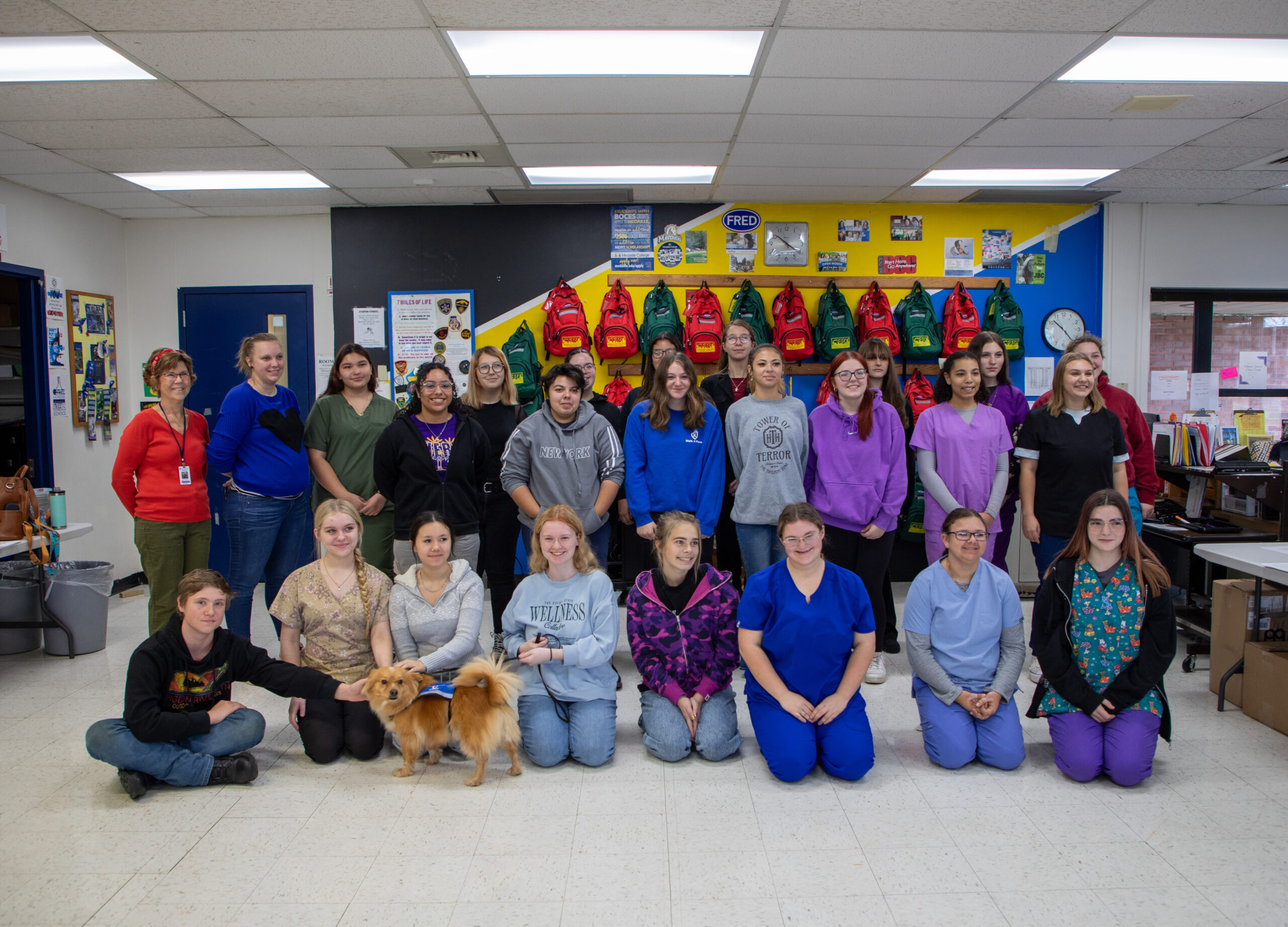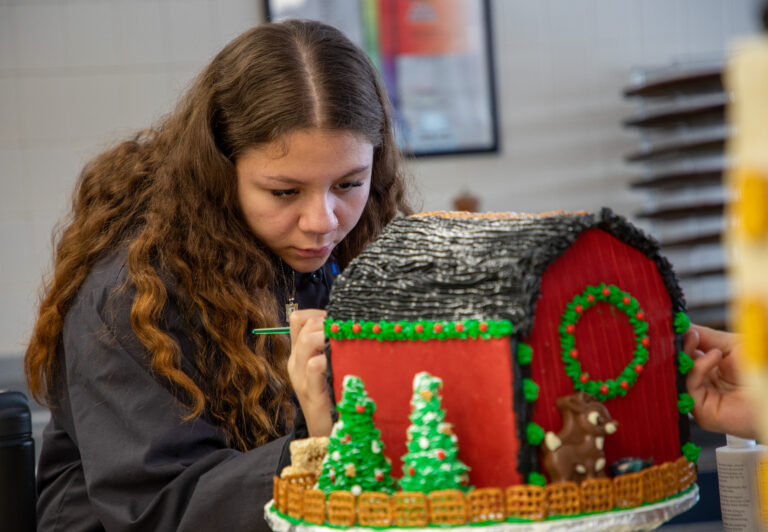
The Chautauqua County Humane Society recently visited with students enrolled in the Small Animal Science and Criminal Justice programs at the LoGuidice Educational Center.
Juniors and seniors in both Career & Technical Education programs heard from Amanda Sublett, clinic coordinator at the Humane Society, and volunteer Laura Corey. The pair discussed a range of topics regarding animals, including overpopulation, the dangers of puppy mills, and animal cruelty laws, among others.
According to information shared with Erie 2-Chautauqua-Cattaraugus BOCES students, there are an estimated 70 million homeless cats and dogs. Each year, anywhere from 4.6 million to 7.6 animals pass through a shelter, with about 1 million pets adopted from a shelter each year.
Sublett said about 2.7 million stray animals are euthanized annually.
Regarding puppy mills, the guest speakers noted that pets are often “not well cared for” and that “profit is prioritized over the life of the animal.”
Animals that come from puppy mills often suffer from severe medical and behavioral issues due to a lack of proper care.
Sublett and Corey went over several animal cruelty statistics with the students. They said about 10 million animals die each year in the United States from abuse or cruelty. They also stated that about 250,000 animals are victims of hoarding annually, while about 75% of reptiles die in the first year of pet ownership.
The pair outlined what laws are on the books at the local, state, and national levels.
Chautauqua County has a leash law for dogs, meaning that dogs must be leashed or safely confined when not on the owner’s property. There is no leash law for cats.
The county also established an Animal Abuse Registry several years ago that’s maintained by the Chautauqua County Sheriff’s Office.
The guest speakers noted that most animal protection laws are enacted and enforced at the state level. However, there is the Animal Welfare Act, a national law signed in 1966.
Students in Holly Lemke’s Small Animal Science and Jennie Alessi’s Criminal Justice classes asked a variety of questions regarding the Chautauqua County Humane Society. Afterward, they were able to pet Corey’s adopted dog, Dottie.
Alessi said the pair’s visit preceded class discussions on animal cruelty laws in New York state. The visit also highlights the importance of safeguarding the interest of animals through the criminal justice system.
Lemke thanked Sublett and Corey for taking the time to talk with both programs. She said students were able to learn about opportunities in the field that are outside a clinical setting.
She also said the Chautauqua County Humane Society will host a Small Animal Science intern this May.
For more information about the Chautauqua County Humane Society, visit https://chqhumane.org/
















